When you’re buying a home in a planned development, you’ll likely encounter a Homeowners Association (HOA). HOAs govern communities, set rules, manage shared spaces, and work to maintain property values. While HOAs offer benefits such as amenities and property upkeep, they also come with rules, restrictions, and fees. For these reasons, evaluating an HOA is essential before committing to a home purchase. Discover essential tips for how to evaluate a homeowners association (HOA). Tips from industry experts. Get some advice here on HOAs. Talk to construction consultants for more assistance.
To help you make an informed decision, here’s how to evaluate a Homeowners Association and determine if it fits your lifestyle.
1. Review the HOA’s Rules and Regulations (CC&Rs)
First and foremost, you’ll want to review the HOA’s Covenants, Conditions, and Restrictions (CC&Rs). These rules govern what homeowners can and cannot do with their properties. Restrictions often cover exterior paint colors, landscaping, parking, and even noise levels. Additionally, pet policies may limit the number or type of pets allowed in the community.
Before making an offer, ensure these rules align with your lifestyle. For instance, restrictions on home improvements or pet ownership could affect your enjoyment of the property. Moreover, CC&Rs often control the use of shared amenities, like pools or gyms, so check that these policies fit your expectations.
Tip:
Request a complete copy of the HOA’s CC&Rs before you commit. Understanding the rules upfront can prevent future surprises.
2. Examine the HOA’s Financial Health
After reviewing the rules, take a close look at the HOA’s financial standing. A financially stable HOA ensures that the community remains well-maintained. Moreover, it can handle unexpected repairs or improvements without imposing large fees on homeowners. A well-managed HOA will have an adequate reserve fund for future projects and emergencies.
Additionally, review the annual budget to see how money is spent on maintenance, security, and amenities. If the reserve fund is underfunded, you might face special assessments. These are extra fees imposed to cover unexpected expenses, often due to poor planning.
Tip:
Ask for recent financial statements, including the reserve study. Healthy reserves mean fewer financial risks for homeowners.
3. Understand the HOA Fees
Next, examine the HOA fees, sometimes referred to as dues. These fees are charged monthly or annually to maintain common areas and provide services. While some fees cover landscaping, trash removal, and amenities, others might include utilities or security. Therefore, it’s crucial to know what your fees cover.
In addition to understanding what the fees include, check if the HOA has raised fees frequently in the past. Fee hikes can strain your budget, so be aware of past trends. Moreover, compare the fees to similar communities nearby. Higher fees may be acceptable if they support better amenities or services.
Tip:
Request a breakdown of what the fees cover. Make sure the services and amenities match your expectations and budget.
4. Evaluate the HOA’s Management
How well an HOA is managed can significantly affect your experience living in the community. Some HOAs are managed by homeowners, while others hire professional management companies. Either way, a well-run HOA will communicate clearly, address issues promptly, and maintain transparency with homeowners.
When evaluating management, consider how the HOA handles communication. Do they regularly update residents about important issues or changes? Is there a process for addressing homeowner concerns? Moreover, consider attending a board meeting or reviewing the meeting minutes. This will give you insight into how decisions are made.
Tip:
Speak to current homeowners about their experiences with the HOA’s management. A responsive, transparent HOA can improve your quality of life.
5. Check for Legal Issues
It’s equally important to check if the HOA is involved in any ongoing legal disputes. Legal battles can be costly and often lead to higher fees for homeowners. In some cases, lawsuits may arise from disagreements over rule enforcement, poor management, or financial mismanagement. These disputes can disrupt the community and create additional stress for homeowners.
Furthermore, review the HOA’s process for resolving disputes. If the HOA has a clear, fair method for handling disagreements, it reflects a well-organized system. A poorly managed HOA, however, may end up in unnecessary legal battles.
Tip:
Ask if the HOA is involved in litigation or has been recently. Legal issues can affect your costs and peace of mind.
6. Consider the HOA’s Community Amenities
HOAs often provide access to amenities such as pools, gyms, parks, and clubhouses. However, not all amenities may be worth the fees you pay. Take time to evaluate the condition of these shared spaces. Well-maintained amenities indicate that the HOA allocates funds properly. In contrast, poorly maintained areas suggest potential mismanagement or financial strain.
Additionally, think about how often you’ll use the amenities. Paying for features you don’t use may feel like wasted money. For instance, if you don’t plan on using a community gym or pool, consider whether the fees make sense for your lifestyle.
Tip:
Visit the community’s amenities before deciding. Ensure that they are well-maintained and useful for your family’s needs.
7. Gauge Homeowner Satisfaction
Finally, speaking with current homeowners can provide valuable insights into how the HOA operates. They can share their experiences, both positive and negative, giving you a clearer picture of what to expect. Ask homeowners if they are satisfied with the way the HOA handles maintenance, rule enforcement, and community concerns. Do they feel the fees are reasonable for the services provided?
Additionally, ask if there have been any significant issues or conflicts between homeowners and the HOA. If there is widespread dissatisfaction, it may be a sign that the HOA is poorly managed or overly restrictive.
Tip:
Chat with multiple homeowners to get a balanced perspective. Their feedback will give you the most accurate view of life in the community.
Conclusion
Evaluating a Homeowners Association is a crucial step when buying a property within a planned community. By reviewing the HOA’s rules, financial health, fees, management, and amenities, you can make an informed decision. Furthermore, speaking with current homeowners and checking for legal issues will help you assess whether the HOA aligns with your lifestyle and financial expectations. A well-managed HOA can enhance your living experience and protect property values, but it’s essential to do your homework before making a commitment. Discover essential tips for how to evaluate a homeowners association (HOA). Tips from industry experts. Talk to construction consultants for more information.


